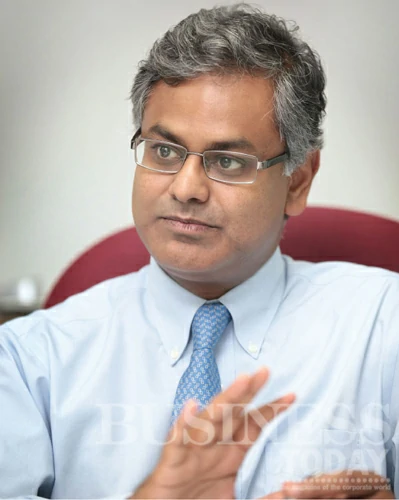
Krishan Balendra is the recently appointed Chairman of Nations Trust Bank (NTB). He is confident that NTB will continue to grow with the country as more opportunities become available. With the bank rolling out its five year strategy, the ultimate aim is to improve the experience of the customers where a far superior level of convenience and service will be provided. He stressed his role is at board level where the focus is on policy, strategy and governance.
By Udeshi Amarasinghe Photography Menaka Aravinda
As the newly appointed Chairman of NTB, can you tell us your plans for the Bank and also how you will support its five-year strategy?
We developed our five-year strategy in 2012. In 2013 we focussed on how we can implement the strategy and developed a number of initiatives for its implementation. We are currently rolling out these plans.
The strategy focusses on all areas of the bank and we have introduced a number of initiatives. The ultimate aim is to improve the experience of our customers where a far superior level of convenience and service is provided. That is the critical part of our five-year strategy.
Nations Trust Bank closed the first quarter with a post tax profit of 550mn rupees, how do you envision that the bank will sustain this growth momentum?
If we look at the stage of growth that Sri Lanka is in, the economy is doing very well. Last year we saw a growth of 7.3 percent. The forecast for this year is at least 7.5 percent and that momentum will continue.
In an environment like that, the banking sector as a whole will grow. NTB though being a relatively new bank we have managed to secure a fair share of the market since our inception in 1999, which is just 15 years of being in business. We will continue to grow and gain market share in a growing vibrant economy. We are very confident that we can sustain this growth or do even better.
NTB is a relatively small bank but it has been able to create a niche market and remain stable. What can you tell us about this?
The Bank has focussed on the retail and SME sector. As we have a young team in a relatively new bank we do not have the legacy issues that some of the older banks have. Since we have focussed on offering convenience and very good customer service, we have managed to do well. We are successful because we have a very capable team and a good strategy addressing the right areas.
The Amex Business Has Been One Of The Key Successes Of The Bank. As A Niche Business It Has Been A Differentiator For US. Amex Gave NTB A Momentum Against Some Of The Other Banks That Did Not Have A Brand Such
As Amex.
NTB offers a wide range of products in personal banking, SME, Corporate, Credit Cards and Remittances. Where do you find the greatest growth and what should be the core focus?
We are seeing growth in most areas. We have also entered a sector that historically banks have not been involved in, which is leasing. NTB merged with Mercantile Leasing and that gave us a head start in the leasing business.
As such a significant part of our portfolio is in leasing. That is one area that should continue to be a growth area.
The Amex business has been one of the key successes of the Bank.
As a niche business it has been a differentiator for us. Amex gave NTB a momentum against some of the other banks that did not have a brand such as Amex. It was a nice launching pad for us, we started Amex in 2003 just four years after the Bank launched and it has worked very well for us.
The card business, SME, retail sector and of course the whole industry has seen a slow down for about 12-18 months. Leaving that aside we have seen good growth
in all areas.
We saw the Central Bank maintaining policy rates and also interest rates have reduced, how has this affected NTB and the banking sector as a whole?
Interest rates started coming down about six months back with inflation going down. We expected loan growth in the banking sector with interest rates coming down but that did not happen as quickly as we expected. But in my view we will start to see a positive movement. If we look at the stock market it is finally picking up after a prolonged period. Interest rates coming down will be positive for NTB as well and the entire banking sector.
What are your thoughts on the banking sector in Sri Lanka? Is it customer centric?
Yes, it is customer centric, but a lot more can be done to have leaner, more efficient process driven banks with faster turnaround time. If you look at most of the banks in Sri Lanka they are more conservatively run. We do not usually see the more advanced instruments that we see in banks in more developed markets.
At the height of the global financial crisis none of the Sri Lankan banks were badly affected. We saw NPLs going up but it was at a very manageable level.
For A Small Market Sri Lanka Has Too Many Financial Institutions And Banks. Consolidation Will Be Good For Customers, Staff And Shareholders. I Am Looking At This Very Positively.
This is an opportunity for a young bank such as NTB, which is growing its market share. One of our key initiatives is to improve the turnaround time for our customers. We recognise that not only at NTB but in most banks in Sri Lanka, there are cumbersome paperwork, bureaucracy and red tape as such approvals can take a long time. It is a challenge because it is not easy to change our ways. But we have laid out a very comprehensive strategy to improve our turnaround time for our customers.
Over the past few years there have been changes in policy and the most recent has been the consolidation of the banking and financial sector, what are your thoughts on this?
At the operational level there has not been any material changes in policy. If we look at the consolidation exercise that can only be positive. For a small market Sri Lanka has too many financial institutions and banks. Consolidation will be good for customers, staff and shareholders.
I am looking at this positively.
Can you elaborate on how NTB is partnering in the development process of the country?
We have opened a number of branches in the North and East, where we have established ourselves from the very beginning post 2009. As a dynamic bank that is willing to look at any area we are active in all industries. We have expanded our reach to the North and East as it is an important area for our business.
What can you tell us about yourself?
My full time job has been with John Keells Holdings (JKH) since 2002. Prior to that I was at UBS in Hong Kong in investment banking.
I completed my degree in London and MBA in France at Insead. My schooling was at Royal College in Colombo.
I manage John Keells Stock Brokers and the supermarket business of the Group. My role at NTB and JKH are totally different from each other. I have been on the Board of NTB since 2009 and that is essentially a board role where we focus on policy, strategy and governance. We are not directly involved in the operational aspects of the Bank. However, my role at JKH is operational. There is a very clear distinction. Even my role as the Chairman of the Colombo Stock Exchange is at a board level. We look at policy, strategy and governance. We do not get involved in day-to-day operations.
Future plans?
The bank has a good strategy for five years. We are now implementing the strategies and that at times is a challenge. If we can implement the strategies successfully the bank will continue to grow. From virtually no market share in 1999 to a fairly established bank today, we can only grow if we fully implement the strategy we have put in place.





